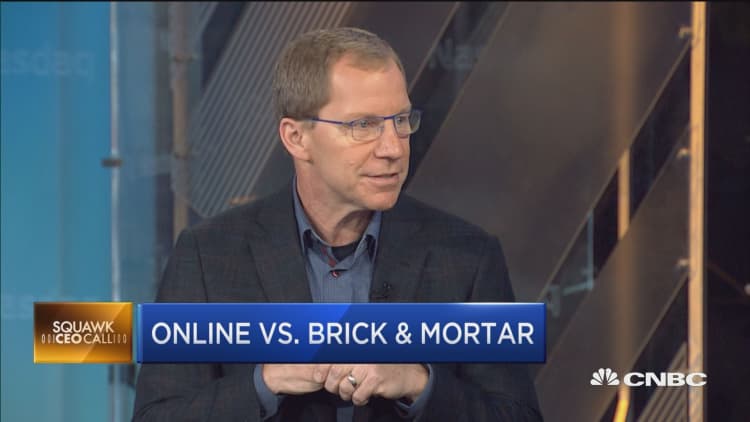
In 2001, Seattle-based Brooks Running made a strategic decision to focus on only one category within sports retail, and the company never looked back, according to Chief Executive Jim Weber. That category was running.
For the latest quarter, Brooks reported double-digit revenue growth, boosted by sales of the company's shoes for avid runners, including Brooks' Ghost and Adrenaline footwear models.
Brooks' third-quarter sales climbed 11 percent, while global footwear revenue was up 14 percent during the period, the company reported Monday. The retailer is also gaining traction in the "$100 and above" segment for adult running footwear, NPD data show.
"We've never experienced a more dynamic time in the marketplace and we're working harder than ever to build and deliver the best gear in the world for all who run," Weber said in a statement. "Despite uneven retail conditions, we continue to invest in future growth" in running.
Brooks, founded in 1914, is a private company and now a subsidiary of Warren Buffett's Berkshire Hathaway.
Brooks' former parent company, Russell Athletic, was sold to the Omaha, Nebraska-based holding company in 2006. In 2012, Berkshire made Brooks a separate business unit, thus Weber now reports directly to Buffett.
Unlike Nike, Under Armour, Adidas, Puma, and other athletic apparel and accessories brands in the marketplace today, Brooks only wants to do one thing well, and better than everyone else, according to Weber. The goal is to manufacture the best shoes and other gear for runners.
When Weber took to the CEO position in 2001, Brooks was selling in a slew of other categories outside of running, he said. But the company quickly regrouped and pulled out of all other business segments, seeing untapped potential with consumers who run — both for leisure and for competition.
To be sure, competition has picked up in the sporting goods industry in recent years, especially as more players launch stand-alone businesses online. And e-commerce giant Amazon has muddied the waters further with its digital marketplace, prompting brands to either consider joining and selling on Amazon.com, or go it alone.
According to Weber, Brooks was halted from selling directly through Amazon a few years back because the two couldn't come to terms on an agreement over "premium brand presentation."
Today, Brooks can still be found on Amazon.com through a handful of third-party vendors, like Zappos. Meantime, Brooks continues to build out its own website, and is testing a concept physical store in Seattle.
Weber said it's increasingly important for brands to have a strong presence online, especially those in his business. In two years, online sales of running shoes went from representing roughly the midteens of total sales, to 30 percent, he said.
Brooks just expanded into China and Brazil this year, after the retailer's successes in Europe, Japan and Canada.
Looking to the future, Brooks aims to grow its brand's awareness among younger consumers, or those ages 25 to 35, Weber told CNBC. And to continue to "refresh" the running category, something Weber said hadn't been done in decades, before Brooks gained its reputation as a running brand.
Brooks just launched its most "reinvented" running shoe, called the Levitate, in September.


